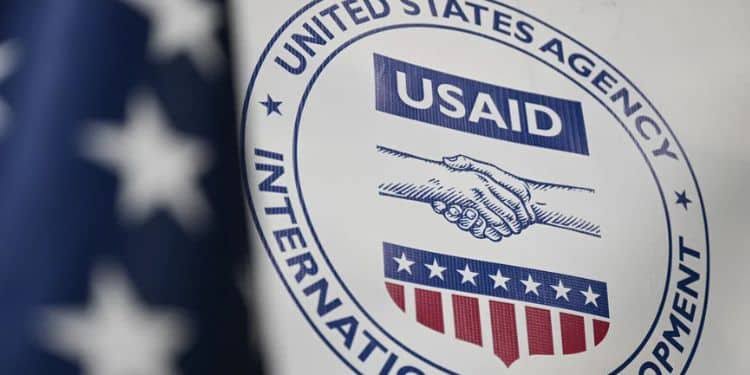
A sudden and unexpected halt in U.S. funding, including USAID and PEPFAR programs, has
left sex worker-led organizations in Nigeria, Uganda, and Kenya in crisis.
Critical healthcare, employment services, and harm reduction initiatives have been abruptly
cut, impacting thousands of sex workers who rely on these programs for survival.
The most pressing concern across all three countries is the disruption in access to
antiretroviral (ARV) medication, pre-exposure prophylaxis (PrEP), and other essential
healthcare services.
In Nigeria, Amaka Enemo, National Coordinator of the Nigerian Sex Workers Association,
described the situation as “deeply overwhelming.”
Many sex worker-led organizations do not operate their clinics but rely on implementing
partners who run One Stop Shops (OSS) where members receive treatment.
“With the shutdown, accessing ARVs has become nearly impossible,” she stated.
In Uganda, the closure of drop-in centers has left 634 ART clients at risk of treatment
interruptions, according to Sanyu Hajjara Batte, Executive Director of the Lady Mermaid
Empowerment Center. The situation is worsened by a national condom shortage, further
increasing HIV risk.
Meanwhile, in Kenya, Lulu Mohammed, Executive Director of Mwamko Mpya Community-
Based Organization, expressed concerns over the impending end of PEPFAR funding.
“Our clinics have been instrumental in curbing infections. Without funding, we face an
immediate shutdown of HIV testing, preventive treatment, and ART services,” Mohammed
warned.
Across all three countries, sex workers face stigma and discrimination in public healthcare
facilities, making it difficult to transition to government-run services. Many now fear
interruptions in life-saving treatment.
The funding cut has resulted in widespread job losses among sex workers employed as
program staff, outreach workers, counselors, and peer educators.
In Nigeria, Enemo highlighted that “overnight, many have become jobless and hopeless,
struggling with depression and financial uncertainty.”
Similarly, in Uganda, organizations have had to reduce operations to three days a week, with
unpaid staff continuing to work out of dedication.
In Kenya, organizations are cutting clinic hours and shifting to peer-to-peer support models to
stretch limited resources.
Financial contribution schemes have also been affected. In Nigeria, some members who had
invested in small businesses through group savings can now not complete their payments,
leading to further economic distress.
Organizations in all three countries received little to no warning before funding was cut.
Some Nigerian groups were informed just days before their budgets were terminated, leaving
them scrambling without contingency plans.
In Uganda, the executive orders affecting U.S. funding created a ripple effect, with many
services shutting down overnight.
While in Kenya, the uncertainty around the expiration of PEPFAR’s 90-day waiver has
caused panic among organizations and beneficiaries alike.
The abrupt nature of the decision has also led to logistical challenges, with some
organizations unable to pay rent for offices or store essential medical supplies.
The future of funding for key populations, particularly sex workers, is becoming increasingly
uncertain as global funding priorities shift.
Maureen Milanga, a prominent HIV advocate, has raised concerns about reductions in
funding from major donors like PEPFAR and the broader implications for HIV prevention
and treatment programs.
According to Milanga, the once-reliable financial streams supporting marginalized
communities are now facing significant cuts.
“PEPFAR has reduced its funding, and many countries are seeing a decrease in their
allocations. This is having a direct impact on sex workers, who are already facing immense
challenges in accessing healthcare and support services,” she stated.
Milanga emphasized that without sustained financial support, hard-won gains in the fight
against HIV/AIDS could be reversed.
“The reality is that many of these communities do not have alternative sources of funding.
Without donor support, they are left vulnerable,” she warned.
With thousands affected, urgent action is needed. Across Nigeria, Uganda, and Kenya, sex
worker-led organizations are calling for international donors, civil society groups, and
government agencies to step in and provide emergency funding to prevent further suffering.
“We need immediate action to prevent further suffering. We cannot allow sex workers to be
left without healthcare, jobs, or support systems. The situation is dire, and we are calling on
the global community to stand with us in this time of need,” Enemo emphasized.
As the global community watches closely, advocates warn that without urgent intervention,
decades of progress in reducing HIV transmission and supporting vulnerable communities
could be undone.
“Cuts to HIV funding will threaten 40 years of work in ending the AIDS epidemic. We
cannot afford to let this happen,” Mohammed concluded.



